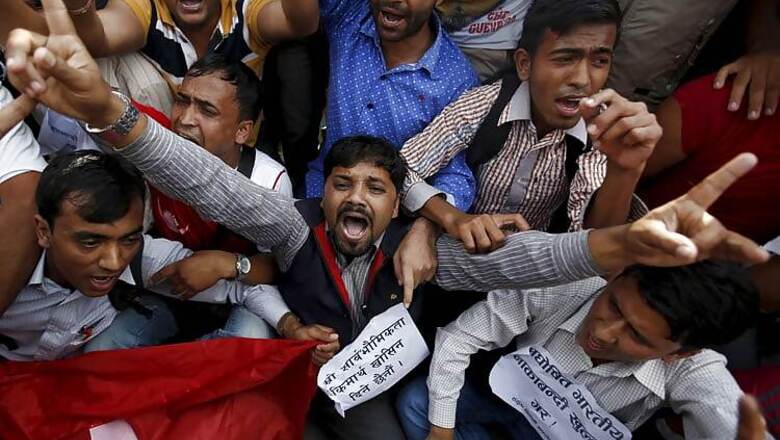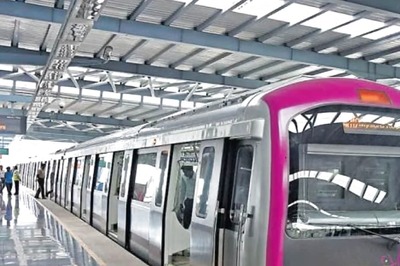
views
Kathmandu: Nepal has turned to the UN over alleged obstruction of a key border trade point with India that has resulted in acute shortage of essential goods as it appealed to the international community to ensure that land- locked countries' freedom of transit is not curtailed.
Deputy Prime Minister Prakash Man Singh, who led Nepal's delegation to the UN General Assembly, held talks with UN Secretary-General Ban Ki-moon during which the issue of "India's blockade" on the border also figured, sources close to Singh said.
Ban expressed his concern over the obstruction of essential supplies and the difficulties resulting from it, they said.
While addressing the General Assembly on Friday, Singh appealed to the world community to ensure effective and unhindered access to the sea for landlocked developing countries (LLDCs) like Nepal through effective implementation of the Vienna Programme of Action for 2014-2024.
"The world needs to ensure LLDCs unhindered access to the sea for free movement of people and goods. We stress that the freedom of transit of LLDCs should not be constrained under any circumstance or pretext to disrupt the flow of goods and services.
"The freedom of transit of LLDCs must be fully and unconditionally adhered to by all transit countries," said Singh, also the Nepali Congress general secretary.
His remarks come at a time when Nepal claims to be suffering from scarcity of essential goods like fuel and cooking gas due to what it terms as "undeclared blockade" of a key trade point at the border with India by people protesting the controversial newly-promulgated Constitution.
India has rejected as "totally false" allegations that it blockaded the checkpoint and has emphasised that it can only take goods up to the border and beyond that it is the responsibility of the Nepalese side to ensure adequate safety and security for the trucks.
The Secretary-General commended Nepalese government and people on the adoption of the new constitution, according to a statement issued by the UN Office on Saturday.
Ban strongly welcomed the decisions made by the Council of Ministers on October 1 to create the conditions for dialogue with agitating groups, including Hindu Madhesis who are Indian-origin inhabitants of the Terai region bordering India and opposed to splitting Nepal into seven provinces.
The Secretary-General also urged all parties to respond to the calls for dialogue and to resolve their differences in a peaceful and flexible manner.
Singh had travelled to New York after Prime Minister Sushil Koirala cancelled his visit to the UN headquarters at the last minute due to the ongoing political unrest gripping the Himalayan nation.



















Comments
0 comment